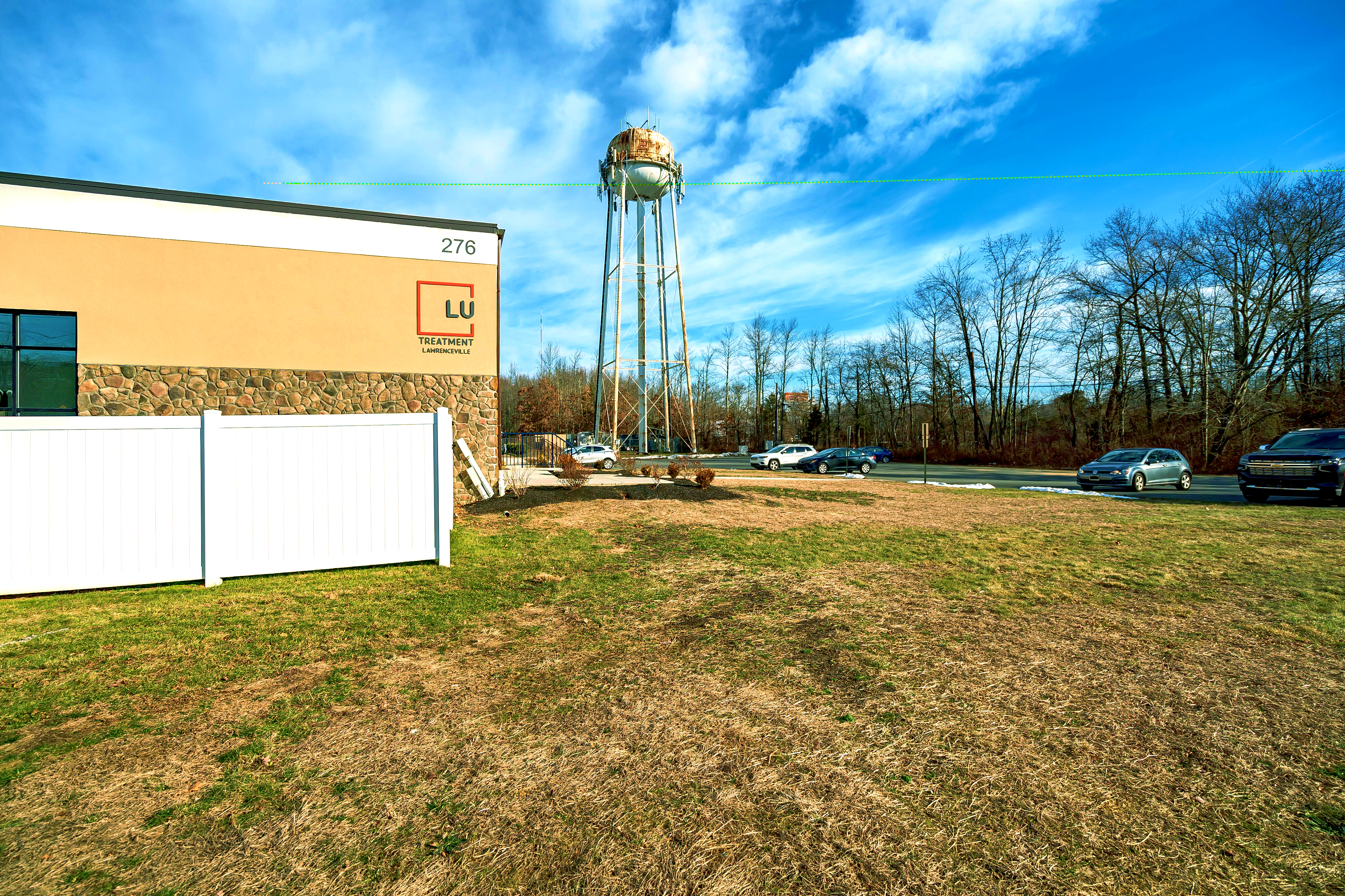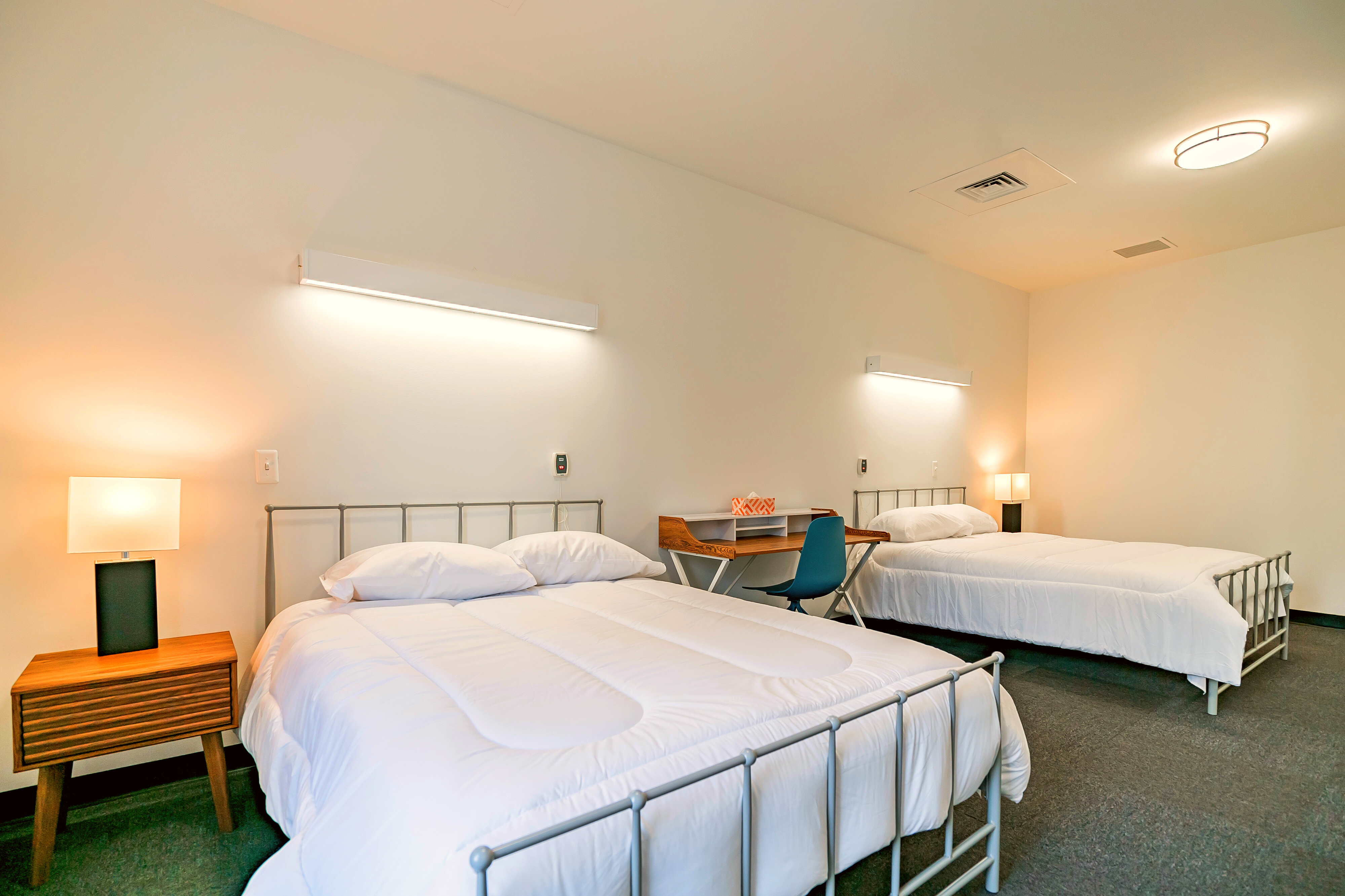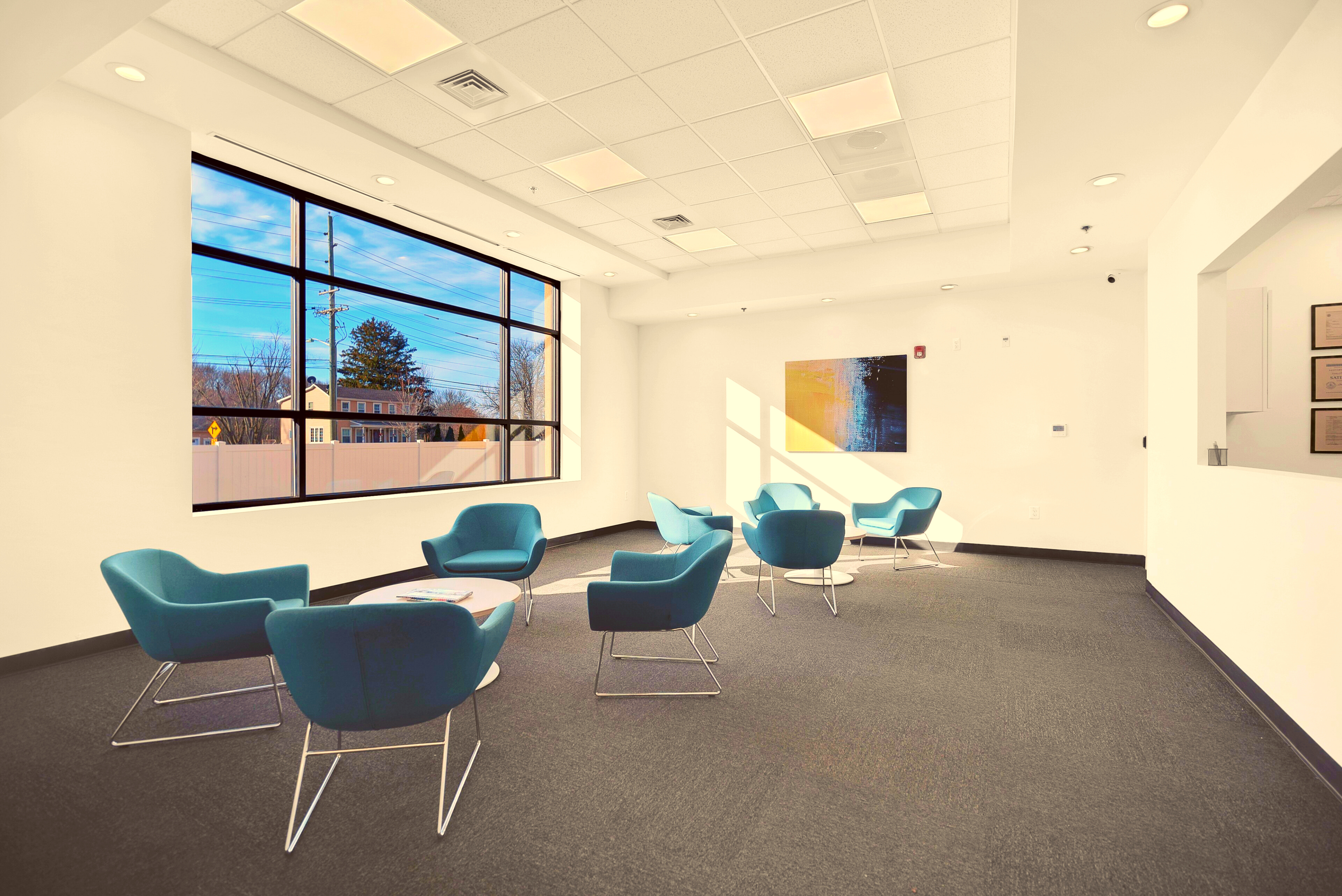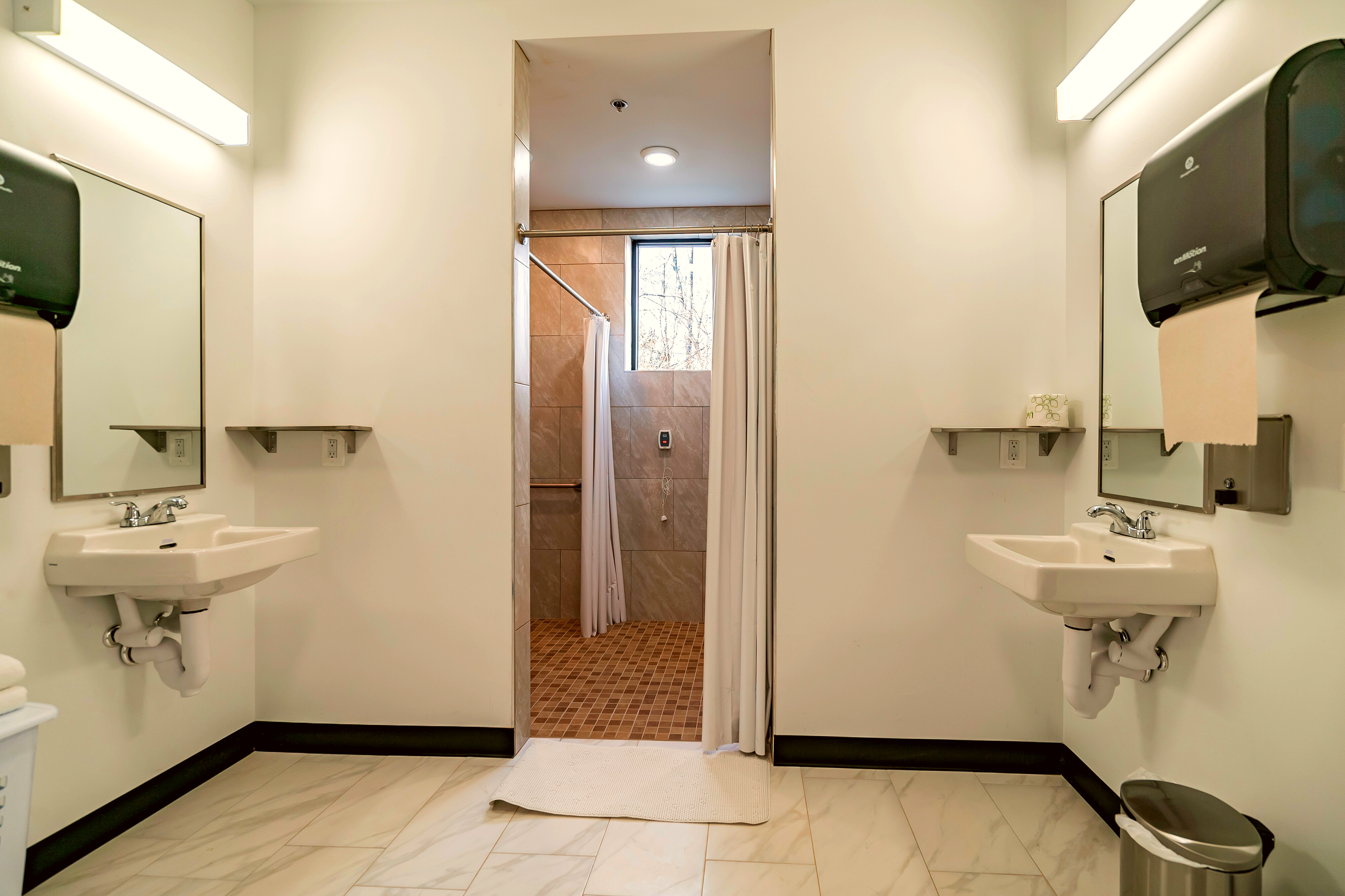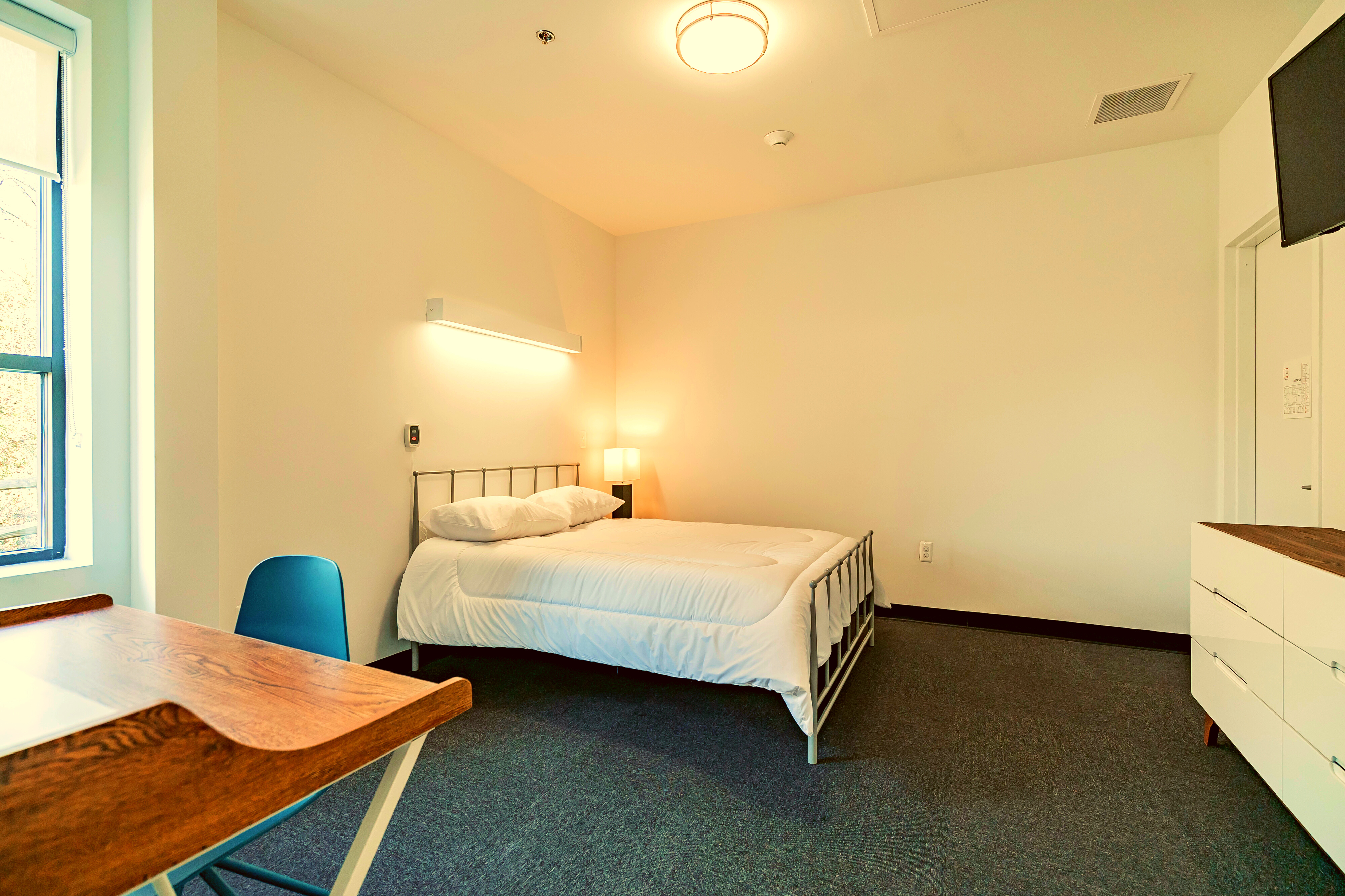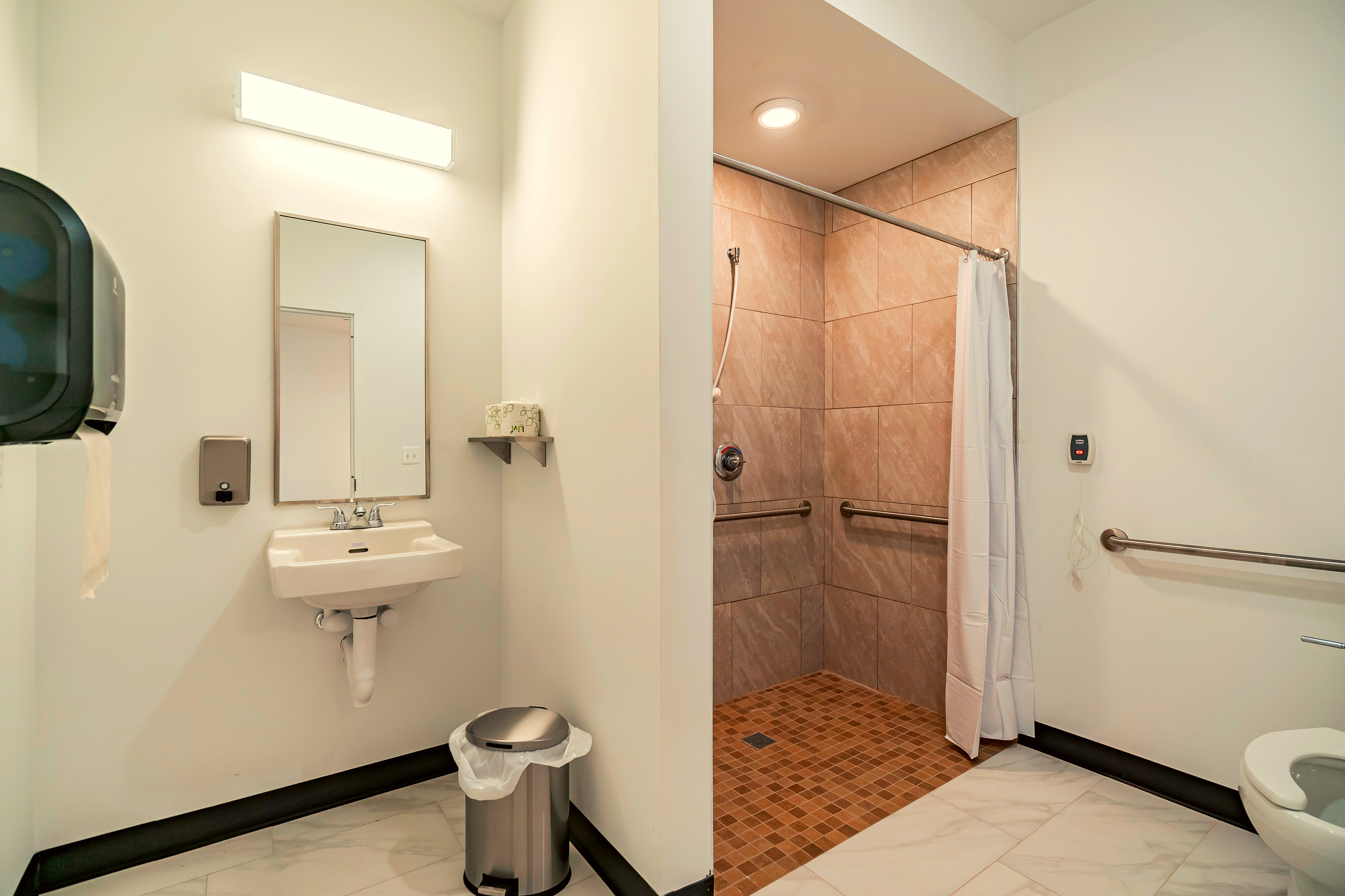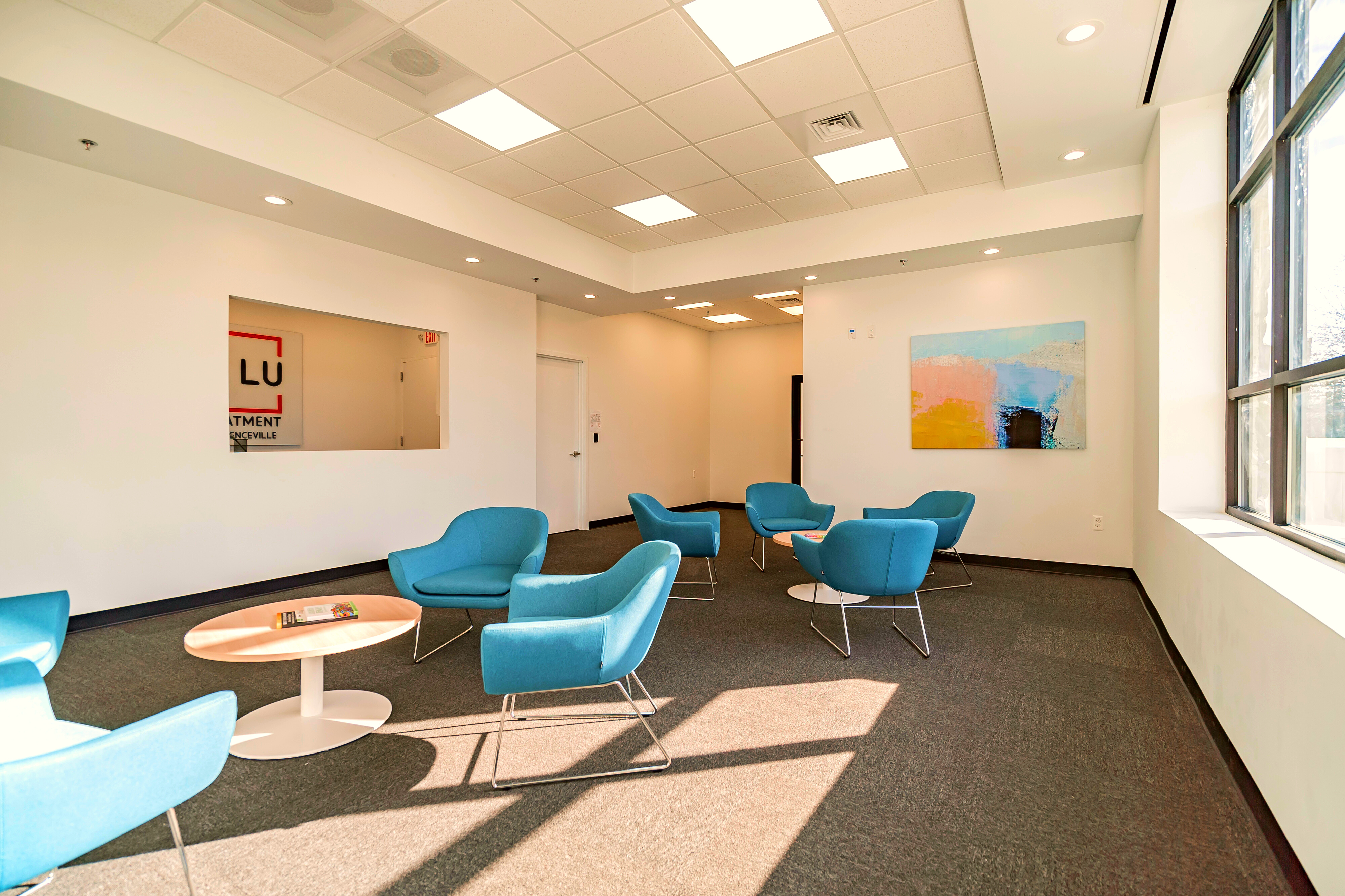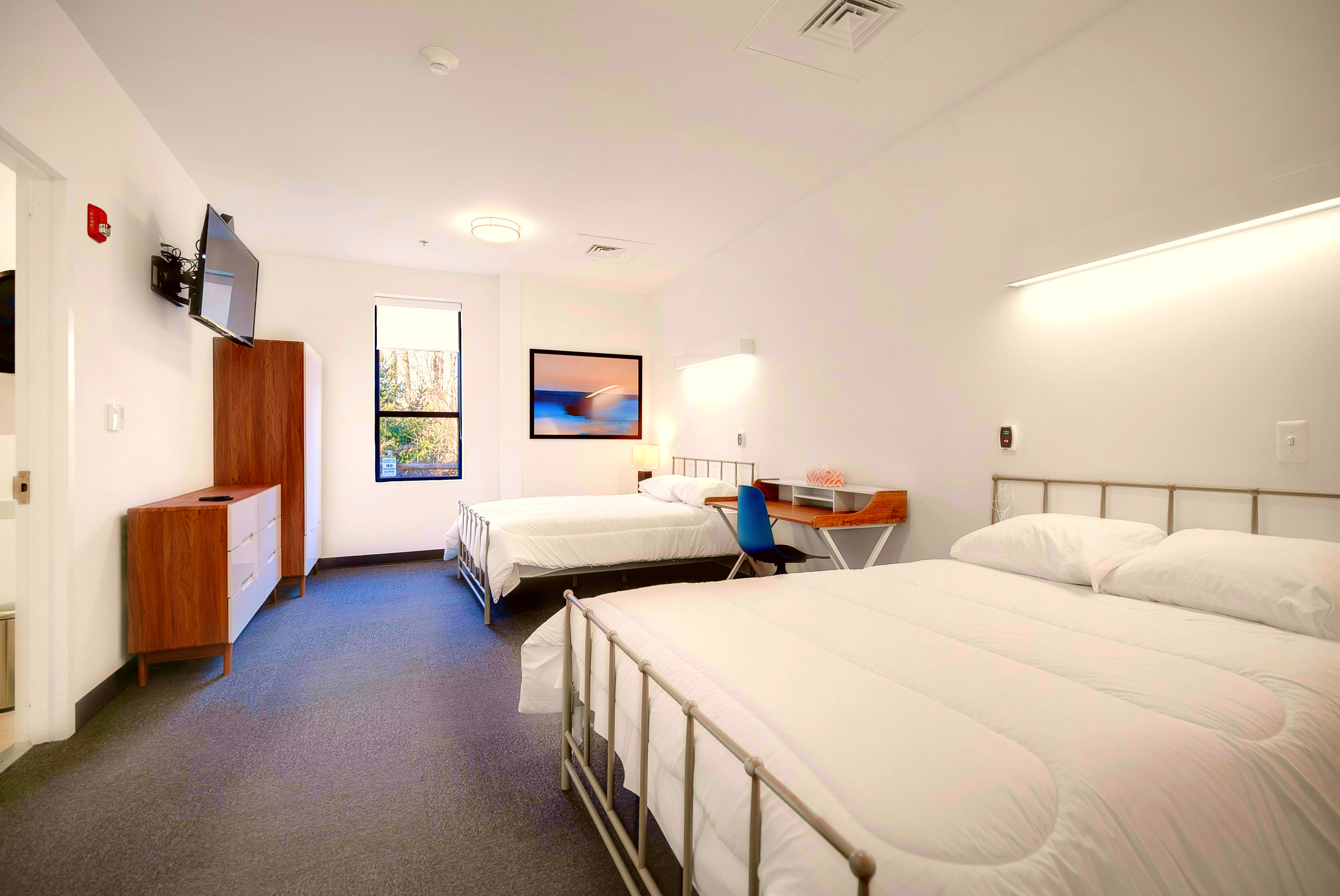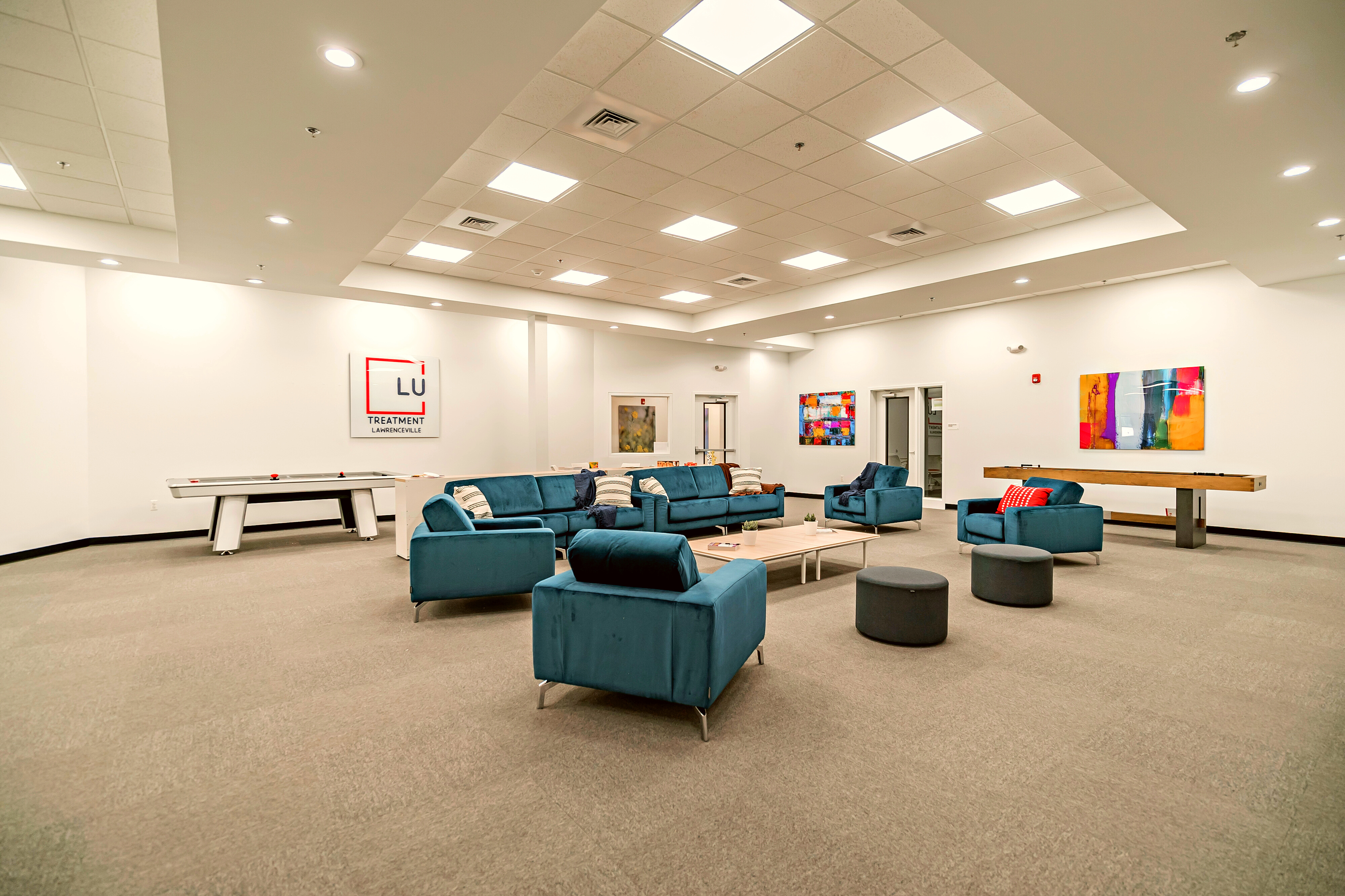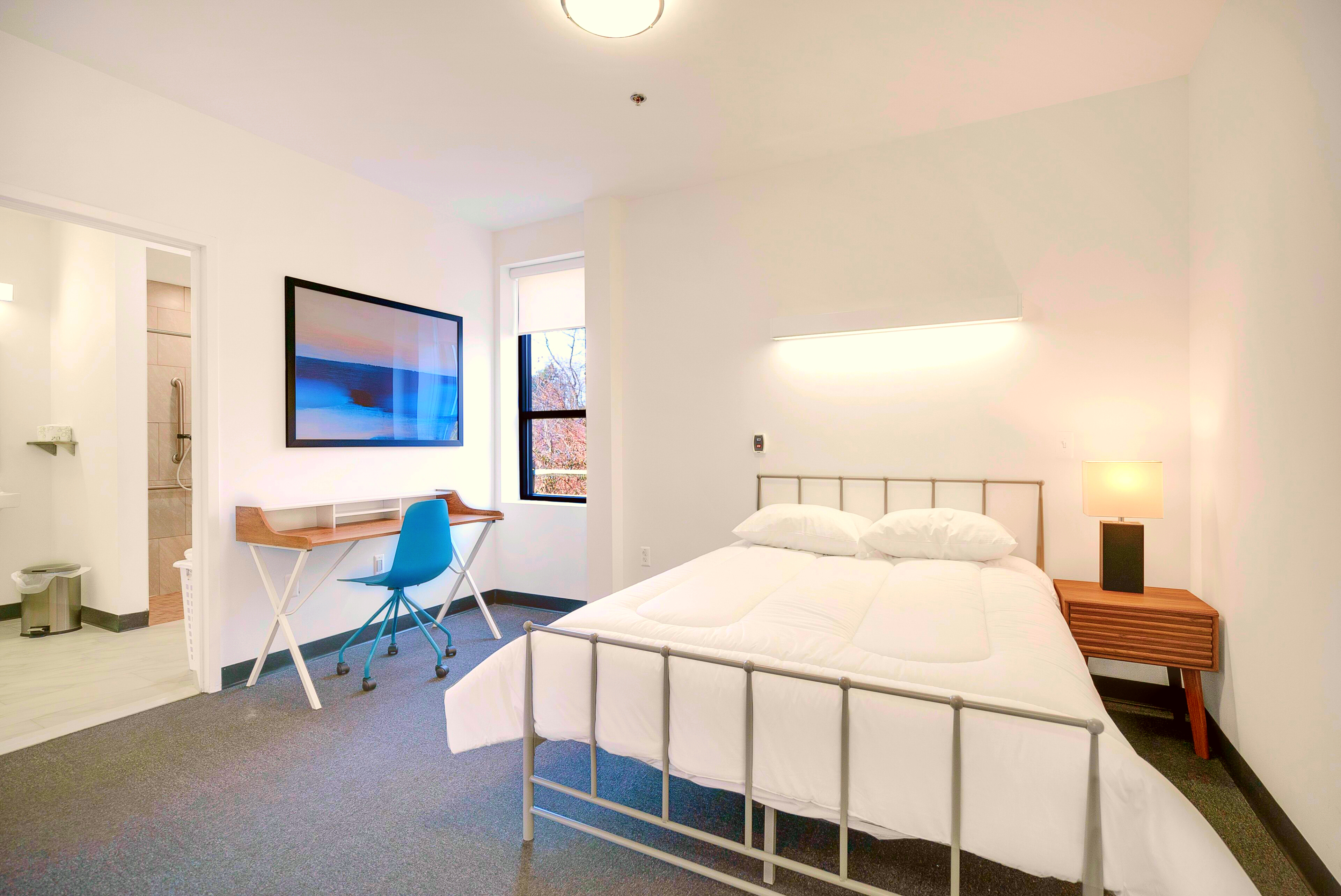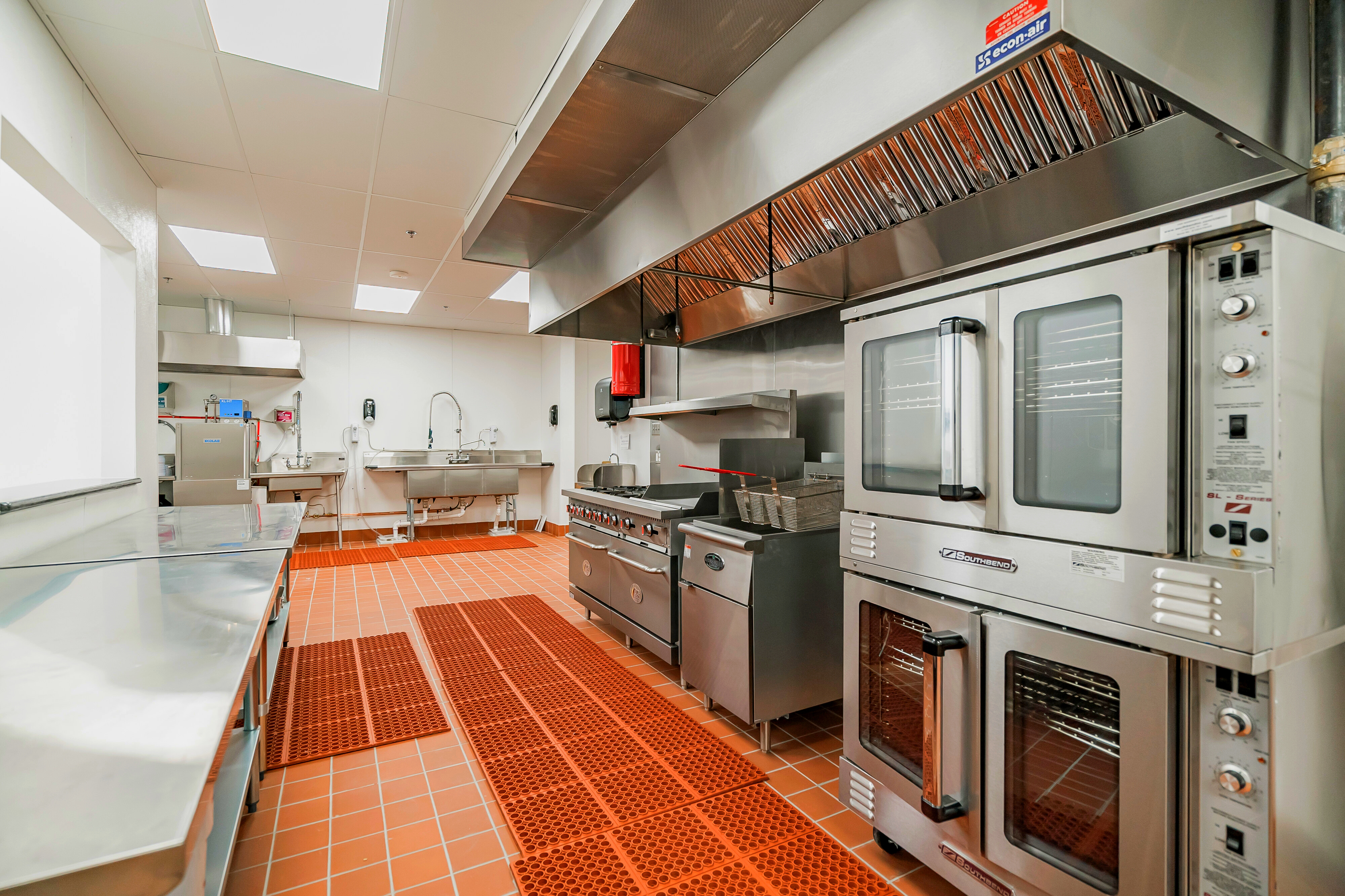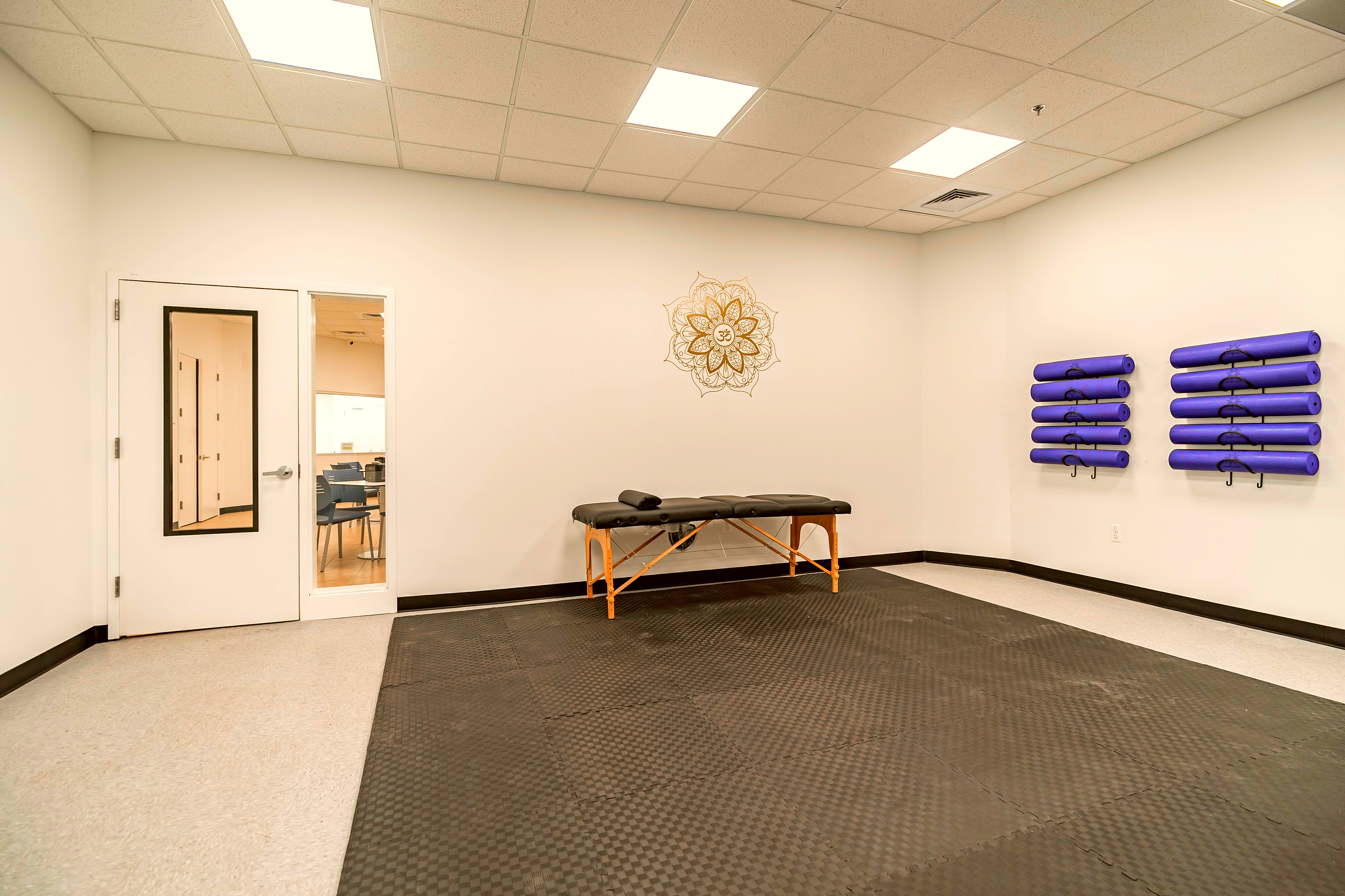
We Level Up Lawrenceville NJ Location, Addiction Treatment Programs & Activities
We Level Up New Jersey Location Map
We Level Up New Jersey Location
Address: 276 Bakers Basin Rd, Lawrenceville, NJ 08648
Phone: (877) 378-4154
Hours: Open 24/7
Client support includes complimentary family and alumni aftercare programs.
Owned by 276 Bakers Detox, LLC, dba Level Up Treatment Lawrenceville.
Proud member of the We Level Up Treatment Centers Network.
World-class, Accredited, 5-Star Reviewed, Effective Addiction & Mental Health Programs. Complete Behavioral Health Inpatient Rehab, Detox plus Co-occuring Disorders Therapy.
CALL (877) 378-4154End the Addiction Pain. End the Emotional Rollercoaster. Get Your Life Back. Start Drug, Alcohol & Dual Diagnosis Mental Health Treatment Now. Get Free No-obligation Guidance by Substance Abuse Specialists Who Understand Addiction & Mental Health Recovery & Know How to Help.
We Level Up Lawrenceville NJ Facility Tour
Lawrenceville, NJ, is located within the township of Lawrence. Commonly known as the “Village of Lawrenceville,” Lawrenceville is an idyllic location. Noted for cleaner air, beautiful scenery, and a peaceful, diverse town, this is the place for a fresh start.
Want to learn more about our NJ location? Get a free call!
|
|
Close Driving Distance from New York, Connecticut & Pennsylvania
Our We Level Up New Jersey center location is near Princeton, NJ. Our private facility is within a reasonable driving distance for addiction rehab and detox patients in New Jersey, New York, Pennsylvania, Connecticut, and Massachusetts.
Accepting Patients Nationwide
We’re part of a national treatment center network. Our treatment programs are highly specialized, accredited, and licensed for substance abuse care. They are so good that patients travel across the USA for treatment. We’re able to care for patients from virtually anywhere. Call to learn more.
Admissions Process
Addiction Programs, Therapies & Activities
Orientation Group
Rotation for any new clients admitted previously in the week that allows for orientation to the program, review of handbook, basic infection control, and review of the grievance process, policies, procedures, and facility.
H & I
Self Help Meetings are brought into the facility from our local recovery community to establish an outside support system; a local 12-step group facilitates meetings and offers 12-step related messages and support to current clients unable to go offsite.
Case Manager/Process Groups
Several groups are offered throughout the week for a small Process group where each therapist meets with individuals on their caseload for a private meeting regarding progress, pitfalls, and planning for the future. Case managers also attend small groups, allowing for an intimate setting with individuals assigned to specific case managers.
Life Skills Activities
Having fun in recovery and focusing on reintegrating into positive social situations. Review the importance of routine and structure and how to live a life in recovery.
Medical Education
Focuses on the importance of medication management and continuing medication regimen after discharge and as part of the after-care process; infection control, HIV/STD awareness, and handwashing hygiene/COVID precautions.
Guided Meditation
The facilitator leads guided meditation by helping residents drum up specific mental imagery and breathing exercises, and mantras to help them meditate.
Anger Management
The facilitator continues to build on mental health and wellness as it pertains to various emotional responses in early recovery; pause; respond vs. reacting; able to focus on the emotional and mental aspects of recovery, separate from physical symptomology; reviews the importance of avoiding catastrophic language, and when escalating, remaining focused on the current situation and how to de-escalate self.
Spirituality
The facilitator work to enhance connection by facilitating individual and group sessions that focus on cultivating self-compassion.It also helps the residents heal their broken relationships with family and friends by aiding them in repairing these damaged bonds through spiritual-based practices.
Coping Skills
The facilitator focuses on healthy coping skills such as relaxation, gratitude, and journaling to help residents solve various issues.
Stages of change
The facilitator educates the residents on the transtheoretical model, which is how people overcome addiction.
Physical examination
A medical professional examines your body during a physical examination to identify whether or not you have a physical condition. Typically, a physical exam consists of: Inspection (looking at the body), Palpation (feeling the body with fingers or hands), Auscultation (listening to sounds)
Daily ongoing assessment of client progress through withdrawal management
Our NJ Alcohol & Drug Inpatient Rehab facility conducts daily ongoing assessments of client progress through the entire withdrawal management process.
Individual counseling
In individual counseling, clients work with a qualified mental health practitioner in a secure, comforting, and private setting. It is sometimes referred to as psychotherapy, talk therapy, or treatment.
Family education and counseling
Family members can be directed to tools and professionals to help them better plan their approach by visiting a dependable doctor, therapist, or addiction specialist. Family members can better support their loved one’s recovery journey by being more knowledgeable about addiction and recovery.
Support services and monitoring to help with reintegration into productive daily living
Our NJ Alcohol & Drug Inpatient Rehab facility offers support services and monitoring to help reintegrate into productive daily living.
Regular medication monitoring
Therapeutic drug monitoring (TDM) is what, exactly? Therapeutic drug monitoring, often known as TDM, is a test that quantifies the concentration of specific drugs in your blood. This is done to ensure that the dosage of medication you are taking is secure and efficient. Without specialized testing, the majority of medications can be dosed correctly.
Health education services
By enhancing their physical, mental, emotional, and social health by increasing their knowledge and influencing their attitudes about taking care of their well-being, health education programs assist individuals and communities in leading healthier lives.
Case management
Case management is a dynamic process that analyzes, plans, implements, coordinates, monitors, and evaluates to improve outcomes, experiences, and value.
Peer Recovery Support Services
Services for peer recovery support offer a means of preventing relapse or partial relapses from developing into full relapses.
Med Pass
The term “medication pass,” often known as “med pass,” refers to giving patients their medications.
Motivational Interviewing
Motivational Interviewing (MI) is a client-centered counseling approach to help individuals explore and resolve ambivalence toward behavior change. Developed by psychologists William R. Miller and Stephen Rollnick in the early 1980s, MI is a directive yet collaborative method that aims to elicit and strengthen an individual’s motivation for positive change.
Morning Reflections
The facilitator leads guided imagery and morning meditation to start the day and ground in the positive; residents are asked to participate in deep breathing and guided imagery and continue to remain positive throughout the day; typically, residents rotate reading a small passage from approved literature, then Residents set a “goal for the day,” which is followed by the evening wrap up and a progress report on goal status.
12 Step Integration
Offers an opportunity to apply the principles of the 12 steps addiction program into a format for living; challenges resistance to the 12-step model by focusing on the principles of “living well” instead of the self-help modality.
CBT Integration
Using different CBT techniques for addiction recovery, exploring automatic negative thoughts and catastrophic language, and how to change negative thought processes for a more positive outcome and a better response to the situation.
Family Dynamics Therapy
The facilitator uses lessons on co-dependency, enabling and continued methods to identify family systems perspectives; Satir modeled overlay with role identification in the family unit and how to heal the family system. Family therapists and additional clinicians offer opportunities for family therapy on “face time”/zoom, as addiction and mental health concerns are family issues affecting the entire dynamic.
SMART Goal Setting
Using different DBT techniques, focusing on changing unhelpful behavioral patterns by acknowledging feelings, thoughts, and behaviors.
Creative Expression
Utilizing creative arts and various forms of expression instead of talk therapy to uncover issues below the surface with many mediums, such as music, dance, and crafts.
Brain Chemistry of Addiction
The facilitator educates the residents on the effects of addiction on the brain and provides tools to help in the recovery process.
Developing Healthy Relationships
The facilitator helps residents identify any damaging or unhealthy relationships that could cause them to relapse, identify supportive relationships and create healthy ones.
Discharge Planning
The facilitator helps the residents develop a discharge plan, create an aftercare plan, and have it in place when they complete treatment.
DBT Integration
Using different DBT techniques, focusing on changing unhelpful behavioral patterns by acknowledging feelings, thoughts, and behaviors.
Comprehensive history & assessment
A health history, which includes details about the patient’s past illnesses or injuries (including childhood illnesses and immunizations), hospitalizations, surgeries, allergies, and chronic illnesses, typically comes first in a full health assessment.
Psychiatric Assessment
A psychiatric service will conduct a psychological screening, also known as a psychiatric evaluation, to learn more about a patient to make a diagnosis. Psychiatric evaluations can be used for various legal objectives, but they are typically the initial step in a treatment process.
Group therapy
In group therapy, clients strengthen and expand their social support networks, acquire and practice coping mechanisms, and increase their interpersonal skills. Usually, one or two group therapists work with six to twelve clients who meet regularly.
Daily medical and nursing services
Our NJ Alcohol & Drug Inpatient Rehab facility conducts daily medical and nursing services for our patients.
Evidenced-based psychoeducation and co-occurring groups
To help patients cope with their condition and increase treatment adherence and efficacy, psychoeducation (PE) is an intervention with systematic, structured, and didactic knowledge transfer for an illness and its treatment.
Phone calls
Our NJ Alcohol & Drug Inpatient Rehab facility allows monitored phone calls twice weekly for our patients.
Dietary Services
Dietary services entail giving a patient food and liquids by prescription.
Planned Recreational Activities
Our NJ Alcohol & Drug Inpatient Rehab facility prepares daily recreational activities for our patients to enjoy during recovery.
Yoga, Reike, Sound baths, Meditation
Yoga instructor provides various physical stretches, chair exercises, and techniques according to mind/body wellness skill level.
Didactic Groups
“Didactic” groups can be facilitated by BHTs and focus on education about recovery. The content is designed to provide clients with tools for recovery around substance use history.
Process Groups
Licensed/credentialed clinicians facilitate “Process” groups. They are therapeutic with content and talk therapy intended to assist clients in processing their feelings and emotions related to the topics.
Recreational Recovery Activities
- Trivia
- Karaoke
- Talent Show
- Pizza Night
- Ice Cream Parties
- Spiritual Walks
- Holiday Events
- Shuffleboard
- Are Therapy
- Open Mic
- Volleyball
- Air Hockey
- Cornhole
- Reiki
- Foosball
- Sound Bowls
- Jeopardy Night
- Nintendo Wii
- Prime Movie Nights
- Netflix With Homemade Popcorn
- Community Game Night
- TV in each room
Comprehensive Case Management Services
- Pending legal matters
- FMLA – family medical leave act
- Discharge Planning
- Letters of presence, treatment verification letters, or treatment provider letters
- DUI
- HIV awareness
- Marchman Act
- Relapse Prevention
- Dietitian
- H&I
- Short-term disability with a case manager
- Assistance with COBRA
- Wellness coach
- Other matters as needed
We Level Up Lawrenceville NJ Quick Links
Free No-Hassle Insurance Check
Surrounding addition center service areas to our We Level Up NJ:
- Bensalem
- Bridgewater
- Buckingham
- East Brunswick
- East Windsor
- Franklin
- Hamilton
- Hillsborough
- Jackson
- Levittown
- Lower Southhampton
- Manville
- Middletown
- Monroe
- New Brunswick
- Northampton
- Princeton
- Raritan
- Readington
- Sayreville
- Trenton
Local Admissions Phone number: (201) 389-9370
Experience Transformative Recovery at the We Level Up Treatment Center.
See our authentic success stories. Get inspired. Get the help you deserve.



Start a New Life
Begin with a free call to an addiction & behavioral health treatment advisor. Learn more about our dual-diagnosis programs. The We Level Up treatment center network delivers various recovery programs at each treatment facility. Call to learn more.
- Personalized Care
- Caring Accountable Staff
- Comfortable Amenities
- Licensed & Accredited
- Renowned w/ 5-Star Reviews
